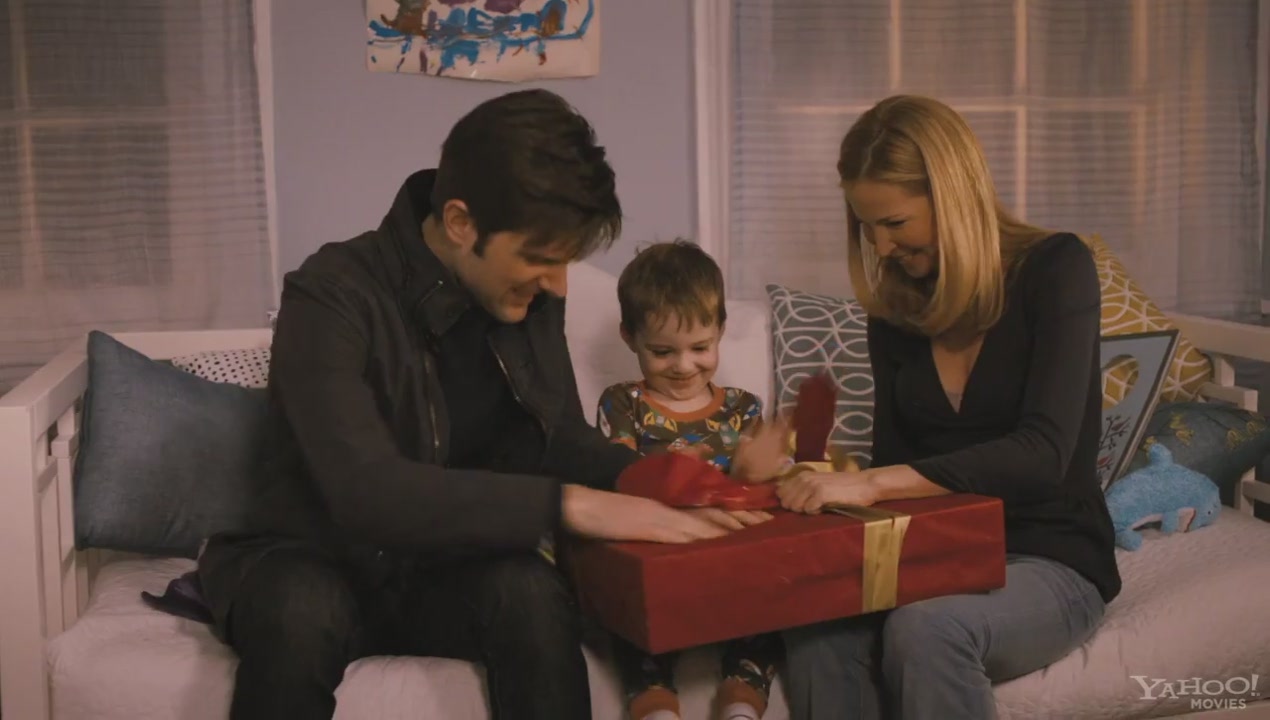Friends with Kids thinks it is smarter than it actually is. Writer/Director/Star Jennifer Westfeldt attempts what seems like a brave attempt at pioneering a new course for raising a child, only she finds several clichés to hit along the way. Aside from the occasional flash of brilliance, Friends with Kids strikes the wrong notes and comes across more grating than transformational.
Platonic friends Jason (Adam Scott) and Julie (Westfeldt) and couple Missy (Kristen Wiig) and Ben (Jon Hamm) just heard from their other married friends Leslie (Maya Rudolph) and Alex (Patty O’Dowd) that Leslie just got pregnant. This leads to Missy getting pregnant right after Leslie does, leaving Jason and Julie single in Manhattan while their friends move to Brooklyn with their new families. Fearing she is nearing her expiration date, Julie suggests to Jason that they have a kid together, split the responsibilities down the middle, and continue searching for their soul mates. The two take to this concept very well to the shock of their friends. Jason also finds a steady girlfriend Mary Jane (Megan Fox) a Broadway dancer who’s very flexible, and Julie finds Kurt (Edward Burns) a recently divorced dad who is as nice as they come.
The central conceit is the biggest flaw of friends with kids. Jason and Julie insist they are considering what is best for their child and are ready for all the questions he will have, but it is inherently obvious that their decision is purely a selfish one. The sad thing is these two have set themselves up to be pretty smart, compromising people; the fact that they could come to this conclusion just doesn’t fit with their characters. They also choose the natural way of conceiving, when adoption or other means would really fulfill what they want out of their “agreement.”
Westfeldt uses the chemistry of the 6 leads to carry certain scenes, despite how rife with cliché most of them are. Like a sitcom, we see the couples change when they have kids, we see love lost in a very angry way, and we see new boyfriends/girlfriends clouding the feelings of the central couple. Many of these scenes reek of improv between the actors, which makes the execution better than scripted dialogue in that it feels natural. This adds something to the scene, but in the end doesn’t save most of them; you end up leaving the theater feeling hollow inside.
The best parts of Friends With Kids involve their study of what causes one person to love another. Because love is so complicated, several relationships are put on-screen to study the concept of love. The best scene of the movie is in the middle of the most clichéd: the friend blowup. Jason expresses whether or not he loves Julie in a beautiful speech with several rich and historic details of their time together: Adam Scott sells this scene very well without compromising Julie and Kurt’s relationship (not an easy feat). Friends with Kids makes sure it studies love in many ways: purely physical, age difference, purely emotional, during hard times, through joint pain and gives the viewer plenty to think about before it gets stuck in its next cliché.
If the central conceit of Friends with Kids were better thought through, this movie could have been more transcendent. Instead, Friends with Kids is a wasted opportunity of a good combination of explorations of love, responsibility, and good actors. Jennifer Westfeldt clearly has some really talented friends; now she needs to turn over some of her writing responsibilities to those talented people.

